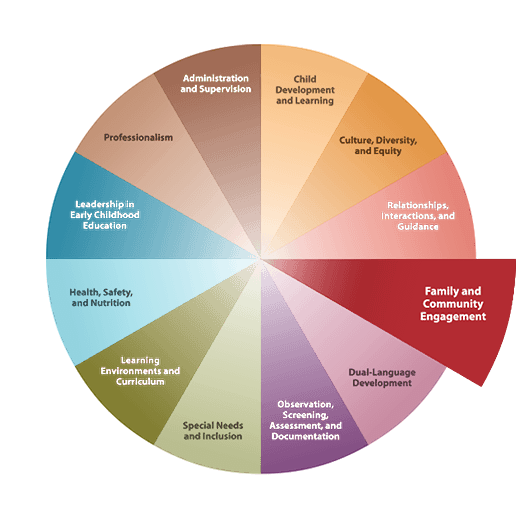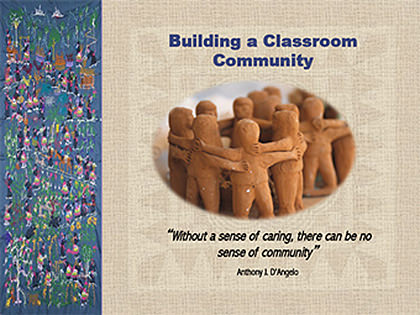This competency area addresses early childhood educator competencies related to the role of the family in the care and education of the child, and the role of the community in providing resources and services to children, their families, and programs. It encompasses the knowledge, skills, and dispositions required to respond appropriately to all aspects of family diversity — such as race, ethnicity, socioeconomic status, culture, family composition, religion, age, ability, and home language. Additionally, this competency area includes the ability to garner community support on behalf of children and families, whether at the local-program level or in the broader public realm (e.g., with other community resources and in school systems).
Key concepts include acknowledgment that children develop in the context of families and communities and that building relationships with families is an integral part of competent and professional early childhood practice. As such, this competency area is related to other competency areas, especially Culture, Diversity, and Equity; Dual-Language Development; and Child Development and Learning.
Download the California ECE Competencies
This document requires the Adobe Acrobat Reader. Download the plug-in.

Framing questions identify some of the major themes in this competency. They provide you with a starting point. As you explore this competency, add your own framing questions for issues you want to further examine.
Keep these dispositions in mind as you explore the Framing Questions. If you mindfully adopt these dispositions, you will realize the Desired Outcomes for Practitioners and for Children.
The CompSAT Keys to Reflection and Inquiry offer you a protocol to use in whatever setting you work as an early childhood educator. Learn how you can integrate the six Keys into your work. Select one of the Keys below to practice reflecting with questions related to the competency area of Family and Community Engagement.

Choose from one of the Keys below to view additional information related to this Competency!

Nan developed a portfolio segment on her Family Cooking Experience for the Family and Community Engagement Competency. She used a presentation tool to organize and creatively display her learning. Notice how she framed her questions, asked herself finer-grained questions that sprang from them, moved to action, outlined her story with prompts, documented her work, reflected on her learning, and made connections for growth.
